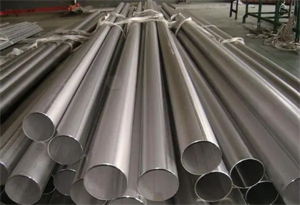What exactly makes Inconel alloys so special?
What exactly makes Inconel alloys so special?
Inconel alloys are one of the most versatile metals. Due to their high performance and superior properties, their applications cover a wide range of industries. They are the natural choice for the automotive, aerospace, marine, and oil and gas industries because they are specifically optimized to withstand some of the most demanding manufacturing conditions.

What is it about Inconel that makes it so special? Here’s everything you need to know about them.
1. How Inconel Alloys are Made
Although Inconel alloys vary widely in their composition, they all have nickel and chromium as their primary elements. These specialty metals are not to be confused with duplex stainless steel, austenitic stainless steel, or any other type of stainless steel alloy. The different types of Inconel® alloys and their respective compositions are briefly described here.
INCONEL 600
This nickel-chromium alloy is highly resistant to a wide range of corrosive elements. It will not succumb to general oxidation or stress corrosion cracking caused by chloride ions, even under extreme temperature conditions.
INCONEL601
Inconel 601 contains nickel, chromium, and aluminum. The addition of aluminum gives it excellent mechanical properties even in high-temperature environments.
INCONEL625
Inconel 625 contains nickel, chromium, molybdenum, and niobium. The reaction between molybdenum and niobium results in hardening of the matrix microstructure of the alloy, which increases its overall tensile strength. It is this nickel-based alloy that is extremely resistant to common corrosive elements under harsh conditions.
INCONEL 690
Unlike the other metal alloys in this series, Inconel 690 is made from high chromium and nickel. The use of high chromium makes this particular metal alloy variant highly resistant to corrosive conditions synonymous with aqueous environments. Its high corrosion resistance also allows it to withstand vulcanization that occurs in high-temperature environments.
The structure and response of Inconel 718 are quite different from the other metals in the series. This nickel-based high-temperature alloy is made from nickel and chromium, as well as significant amounts of molybdenum, niobium, and iron. It also contains trace amounts of aluminum and titanium. The combination of these alloying elements makes Inconel 718 very strong, flexible, and resistant to post-weld cracking.
2. Applications for Inconel alloys
Manufacturers and design engineers use Inconel alloys in a number of industrial applications that require reliable and technically superior materials. The fact that they have excellent corrosion and high-temperature resistance makes them very attractive.
These alloys are best reserved for use in environments that other materials cannot withstand. Here is an overview of some of the major industrial applications that rely on Inconel alloys.
Aerospace Industry
Jet engine components are consistently exposed to high pressures and temperatures. As a result, the materials used in their construction need to withstand these conditions while maintaining their strength and integrity.
Nickel-based high-temperature alloys are the natural choice for any high-temperature application. It offers corrosion resistance in high-stress environments, creep deformation resistance, and low expansion even at high temperatures. For example, Inconel 718 and 750 are used to make turbine seals, fasteners, and exhaust bushings.
Automotive Industry
An automobile engine is a sophisticated piece of machinery. It generates a lot of heat, but still needs to be efficient, lightweight, and reliable. Inconel 600, 601, and 625 have a wide range of applications, including the manufacture of key components for high-performance vehicles. In addition, it is commonly used in passive safety devices such as airbags, electrical switchgear, fuel pumps, sensors, ignition systems, and exhaust fittings.
Marine Industry
Inconel alloys deliver high performance even under the most extreme conditions, such as in the marine industry. Nickel alloys are manufactured to withstand the highly corrosive conditions of offshore processing plants that rely on seawater as a coolant.
Inconel 625 is widely used in submarine communication cable sheathing, propulsion motors, propeller blades, wire ropes, and even downhole equipment.
3. Characteristics of Inconel alloys
One of the most notable characteristics of Inconel alloys is their corrosion resistance. They also have significant oxidation resistance and can withstand high temperatures even when compared to stainless steel.
When exposed to high temperatures, Inconel forms a protective passivated oxide layer on its surface to protect it from further damage. Not only is it heat resistant, but it maintains its strength under these conditions. In addition, Inconel is resistant to pressure, making it ideal for extreme applications in a variety of fields.


